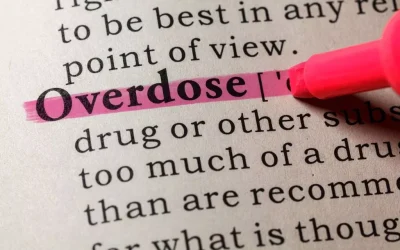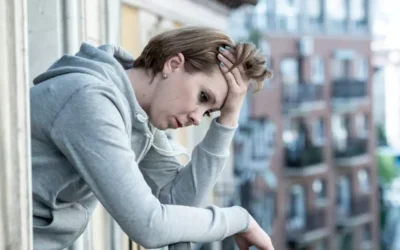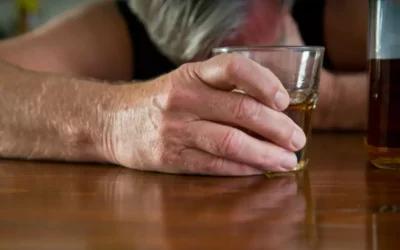There are several mindful balloon activities, but one of the easiest is the ‘balloon hacky sack.’ To play, you only have to sit in a circle and keep the balloon from touching the ground. This game has no winners https://ecosoberhouse.com/ or losers, and you may play with more than one balloon at a time. As your group focuses on the balloons and keeping them aloft, your mind will calm down, and all those problems will fade into the background.
- These outcomes include significantly reduced drug and alcohol misuse, decreased criminal activity, and improved overall social and psychological well-being.
- The group dynamic encourages honest feedback and facilitates bonding between individuals with shared experiences.
- Mindfulness is a person’s ability to be aware of where they are and what they’re doing while remaining present.
- Prior to coming to Alina Lodge, Megan was the Senior Case Supervisor for Passaic County Court Appointed Special Advocates.
- Now that we’ve considered the steps involved in determining your group’s purpose, let’s look at three examples of how to design group sessions that meet these aims.
How Does Group Therapy Help with Substance Abuse?
Substance abuse treatment focuses on learning how to replace those bad habits with better ones. When you change your daily routines, you’ll create a healthier life for yourself. However, group members might require help identifying them before you can teach them how to develop new ones for sobriety.
Group Therapy Topics for Addiction

Write questions or statements related to the group topic on masking tape and place them randomly around the beach ball and pass it around to group members. When clients catch the ball, they have to talk about the statement or answer the question closest to their right thumb. Ask your clients to share what their tombstone would say if they were to die today. Pass out pre-printed outlines of a tombstone and ask your clients to think about this exercise seriously.
How to Provide Psychoeducation in Group Therapy

In several of the examples that follow, we’ll draw on a range of pre-made tools and psychoeducational activities from the comprehensive psychotherapy platform Quenza. Now that we’ve considered the steps involved in determining your group’s purpose, let’s look at three examples of how to design group sessions that meet these aims. The nature of a group’s sessions will differ depending on this chosen aim.
- Jane strives to combine her knowledge and experience from her prior careers and education to provide the highest level of care to Alina Lodge’s students and families as a member of the clinical team.
- Much like music, artistic activities can help people relax and focus on something soothing, which aids in recovery and healing.
- Group therapy can play a vital role in recovery for those struggling with substance abuse.
- Warm-up activities in group sessions help clients build connections, reduce anxiety and defensiveness, and can shift focus to specific topics of discussion.
- These groups offer a haven for members to openly discuss their struggles, triumphs, and setbacks.
- By fostering a sense of belonging and camaraderie, trust-building activities strengthen members’ bonds and encourage the formation of a cohesive, supportive community.
In addition, she is a Grief Recovery Specialist® and a Nationally Certified Counselor. Thérèse currently facilitates the Grief and Loss, and Sex and Relationship specialty groups offered at Alina Lodge. She hosts weekly Zoom sessions with the family members of current and past students to help normalize their experiences and to provide a space where group members share their experience, strength, and hope. Carol also facilitates the multi-day Family Intensives Program for family members and students who demonstrate change and commitment to recovery. Support systems, such as therapy groups, can help members gain greater self-awareness and a sense of community.
- These group sessions provide a supportive and confidential environment for participants to discuss their challenges, express their feelings, and gain insights into their own experiences and behaviors.
- It is always important for group members to discuss any current issues and get advice and support from other members of the group.
- Talk about how differently people perceive things based on who they are and the situation at hand.

Groups can establish a safe, trusting interpersonal environment that allows members to gain new skills and experiences. Group therapy can provide a supportive and cost-effective way to treat symptoms and underlying causes of these debilitating mental health conditions. Expressive art storytelling can be made into a group activity by having members take part in expressive art together. An example would be to have group members individually draw or paint to the sound of music in a way that depicts their personal story for a specified amount of time. After the session, clients share the meaning of their art with other group members. Group therapy activities provide emotional connection, education, support, encouragement, and guidance that can improve mental, emotional, and physical wellbeing.
When discussing these issues, you’ll develop healthier methods for controlling anger and stress. Therefore, you will serve yourself and build a stronger relationship with yourself. Heather transitioned into the substance abuse field in 2012 where she began her career in referral relations and the admissions substance abuse group activities for adults aspect of the industry. She has also trained in several models of intervention training and education over the last 8 years and has been a candidate member of the Association of Intervention Specialists since 2012. Heather is currently pursuing her CIP through the Pennsylvania Certification Board.
- Group therapy can be a fun way to improve aspects of mental and emotional wellbeing.
- Afterward, participants may be invited to share any surprising or revealing thoughts they had, if they feel comfortable doing so.
- Write questions or statements related to the group topic on masking tape and place them randomly around the beach ball and pass it around to group members.
Trauma triggers and crisis management
Who leads group therapy?
NIDA Challenges Program National Institute on Drug Abuse (NIDA) – National Institute on Drug Abuse
NIDA Challenges Program National Institute on Drug Abuse (NIDA).
Posted: Tue, 20 Feb 2024 08:00:00 GMT [source]
